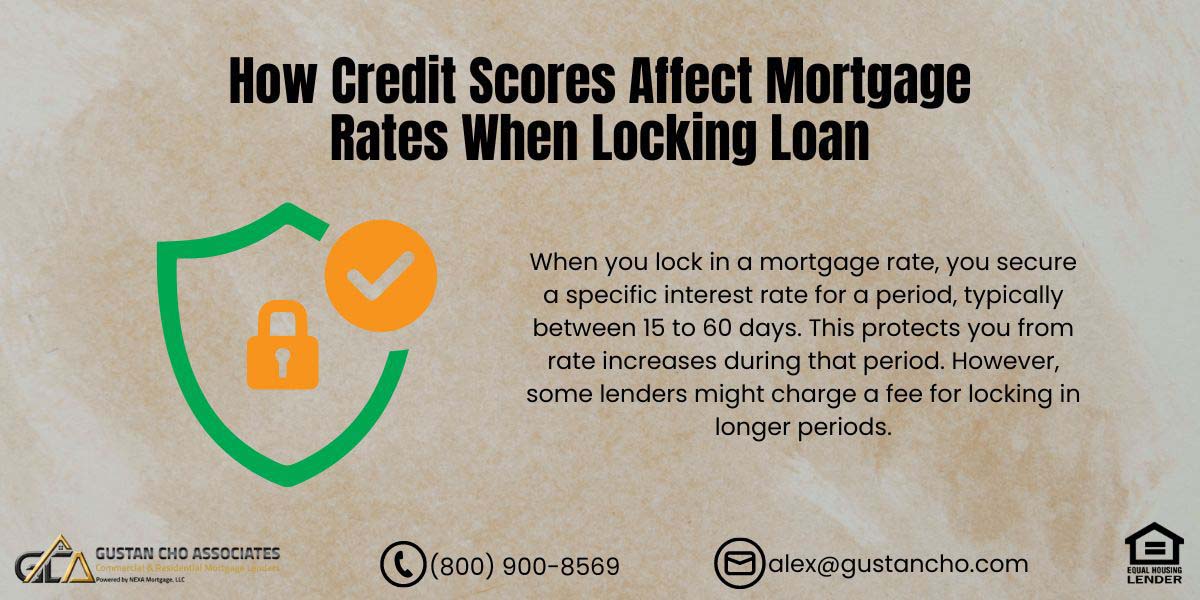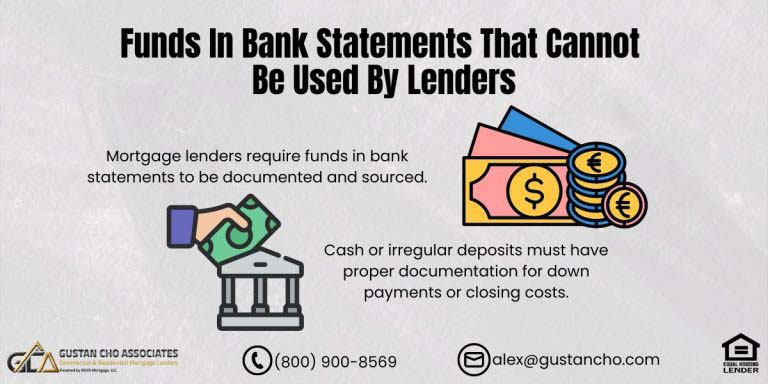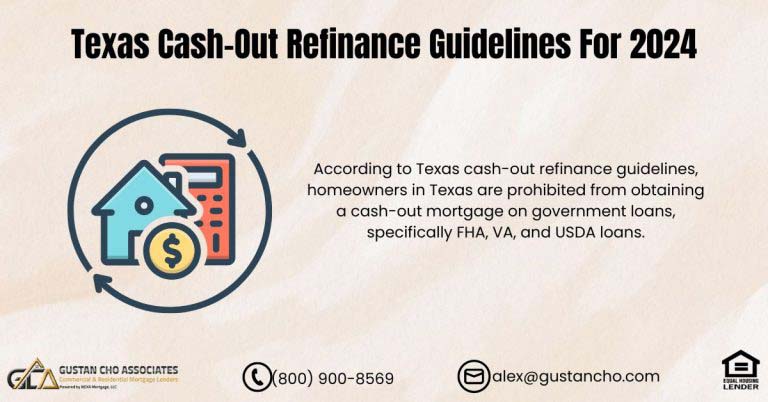This Article Is About How Credit Scores Affect Mortgage Rates When Locking Loan
Mortgage Rates have dropped 0.25% after the sudden surge in recent weeks. Many borrowers in recent weeks were alarmed due to the sudden surge of rates. Now is the opportunity to lock in rates. How much lower will rates go? Nobody has a crystal ball. Today’s rates are now at 3.25% on a 30-year fixed-rate mortgage for borrowers. In this article, we will discuss and cover today’s rates and how credit scores affect rates when locking loans.
The Impact Of Credit Scores On Mortgage Rates
Credit scores do have an impact on what mortgage rates borrowers get, especially with conventional loan programs. Credit scores are also the main factor used for qualification purposes. Borrowers must meet minimum credit score requirements to qualify for a specific mortgage loan program. For example, the minimum credit score required to qualify for a 3.5% down payment FHA-insured mortgage loan is 580.
To qualify for an FHA loan that requires a minimum down payment of 10%, credit scores need to be between 500 and 579. VA Loans does not have a minimum credit score requirement. To qualify for a conventional loan minimum credit score needs to be 620. For condotel unit and non-warrantable loan programs, credit scores need to be at least 680.
Wondering How Your Credit Score Affects Your Mortgage Rate? Let’s Explain the Impact!
Contact us today to learn how your credit score can influence your rate and how to get the best deal.
What Happens When You Lock in a Mortgage Rate?
When you lock in a mortgage rate, you secure a specific interest rate for a set period, typically 15 to 60 days, although longer periods are sometimes available. Here are the key points to understand:
- Rate Protection: The primary benefit of locking in a rate for a home loan is protection from interest rate increases. If rates rise after you lock in your rate, you will still benefit from the lower rate you secured.
- Rate Lock Period: The rate lock period is the duration for which the lender guarantees the interest rate. This period can vary but is often between 30 and 60 days. You must close the loan to benefit from the locked rate during this time.
- Rate Lock Fees: Many lenders provide the option to lock in a rate for free, which is an excellent benefit. Some may charge a fee for longer lock periods, but understanding these fees is crucial. Rest assured, you’ll find the best option for your needs!
- Rate Lock Expiration: If your rate lock expires before your loan closes, you may have to extend the lock period, which could incur additional fees, or you may need to accept the current market rate for a home loan, which could be higher.
- Rate Decrease: If interest rates fall after locking in your rate, some lenders may offer a “float-down” option, enabling you to benefit from the lower rate. This option might involve an extra fee.
- Commitment to Terms: Locking in a rate generally commits you to the terms and conditions of the loan at that rate. If you decide to change the loan amount or type, you may need to reapply for the mortgage and potentially lose the locked rate.
- Credit Scores and Mortgage Rates: Understanding the impact of credit scores on mortgage rates is crucial. Higher credit scores often lead to more favorable interest rates, while lower scores may result in higher rates. Securing your rate can prevent potential rate increases and credit score fluctuations.
- Peace of Mind: Locking in a rate provides peace of mind, knowing that your rate won’t increase during the lock period, helping you plan your finances more accurately.
It’s important to communicate with your lender to fully understand the specifics of your rate lock, including the lock period, any associated fees, and options available if interest rates change significantly during the lock period. Understanding how credit scores affect mortgage rates can also help you make more informed decisions when locking in a rate for your home loan.
Rates On Jumbo Loans
To qualify for a jumbo mortgage, the minimum credit score needs to be at least 700:
- Gustan Cho Associates Mortgage Group has Non-QM jumbo loan programs with credit scores down to 500 FICO
- Gustan Cho Associates also offers traditional 90% LTV jumbo mortgages with credit scores down to 660 FICO
- Having good credit scores are not just to meet minimum qualification guidelines
- Credit scores can have a great impact on what mortgage rate borrowers get
- How Credit Scores Affect Mortgage Rates is poor credit scores mean higher mortgage interest rates
Jumbo loans are considered riskier loans. Therefore credit and income requirements are higher than traditional conforming loan programs.
Conventional Mortgage Rates And Credit Scores
To get the top and best mortgage rates on conventional loans, a credit score of 740 or higher is required:
- For every 20 point drop, the mortgage rate will be higher
- The higher rate a lender charges due to a lower credit score are called price adjustments
- Normally, with conventional loans, there are price adjustments for every 20 points
- FHA loans are not as credit-sensitive as conventional loans unless credit score falls below 600
- To get the best FHA mortgage rates, borrowers need is a credit score of 680 or higher
- With FHA loans, the mortgage rate will be the same whether the credit score is 680 or 740
- However, if credit scores fall below 640 mortgage rates will be higher
If credit scores are below 600 borrowers can expect to pay over 1.0% in mortgage rate higher than if credit scores were at 640 or higher.
How Credit Scores Affect Mortgage Rates And Pricing
Mortgage lenders will pull credit from the three giant credit reporting agencies when borrowers apply for a mortgage:
- Transunion
- Experian
- Equifax
Each credit bureau will have a specific credit score for each consumer. Mortgage lenders will use the middle credit score to qualify a mortgage loan applicant.
Credit Scores Used By Lenders To Qualify Borrowers
For example, let’s assume a borrower has the following credit scores:
- Transunion credit score is 600
- Experian credit score is 650
- Equifax credit score is 700
The 650 Experian middle score will be used. How Credit Scores Affect Mortgage Rates is that credit score will be the determinant of whether borrowers qualify for a particular mortgage loan program. How Credit Scores Affect Mortgage Rates is the credit score that will be the determining score for pricing on mortgage rates.
How Does Your Credit Score Affect Mortgage Rates When Locking a Loan? We Can Help You Understand!
Contact us today to discuss how your score impacts your loan rate and to get expert advice on how to lock in the best rate.
How Credit Scores Affect Rates With Lenders
Credit scores are the biggest factor in determining rates by mortgage companies. Pricing hits or loan level pricing adjustments are based on credit scores. Credit scores will have a range between 300 and 850. How Credit Scores Affect Mortgage Rates is the higher the credit scores, the lower borrowers’ mortgage rates. A credit score of over 700 is considered a good risk borrower. Anyone with a credit score of 620 or lower is considered a high-risk borrower. Borrowers with credit scores below 600 FICO will get higher mortgage rates and may have to pay discount points.
How Are Credit Scores Broken Down
The credit score is derived from various factors:
- 35% of the credit score will be derived by overall payment history and how timely consumers are in paying bills
- 30% of credit score consist of the balance consumers owe creditors compared to the credit limit
- 15% of credit score consists of the longevity of overall credit history and how long consumers had active credit accounts
- The final 10% that make up credit score is the mixture of credit consumers have
- For example, credit scores will be higher if consumers have installment loans, revolving credit, mortgage loans, automobile loans, and personal loans
Credit bureaus want consumers to have a variety of credit mixes versus just one type of credit such as just having credit cards and no auto loans, mortgage loans, student loans, etc.
How Lenders View Credit Scores Versus Mortgage Rates
Mortgage lenders view that a person’s credit score reflects a person’s risk factor. Lenders believe a person with a higher credit score is financially more responsible than a person with a lower credit score. Higher credit score borrowers pose a less risk factor and a lesser chance of default.
Credit Scores Can Be Improved
Buyers planning on buying a home in the near future, please consult with a mortgage banker or mortgage broker and get qualified. For home buyers with lower credit scores, there might be some quick fixes to improve credit scores in a short period of time. People who have their credit cards maxed out normally can boost their credit scores almost right away.
This can be done by paying down their credit card balances. Others might not have enough active credit or no re-established credit after a period of bad credit or after a bankruptcy or foreclosure.
Getting three to five secured credit cards may do the trick. Each secured credit card can boost a person’s credit score by 20 or more points. Yet others may have errors on their credit report. May need to dispute the derogatory if borrowers have proof derogatory is not theirs or the creditor and/or the credit reporting agency may have misreported the derogatory information. This can be done with a rapid rescore.
What Happens to Your Credit Score When You Pay Off Your Mortgage?
Paying off your mortgage can have several effects on your credit score, both positive and negative. On the positive side, reducing your total debt load improves your credit utilization ratio, boosting your credit score. When looking for a new rate for home, having a higher credit score is advantageous as it offers opportunities for improved loan terms and financial flexibility with lenders.
Additionally, successfully managing and paying off an installment loan like a mortgage demonstrates your ability to handle different types of credit, further enhancing your credit score and potentially leading to more favorable mortgage rates.
However, there can also be some negative impacts. The account is closed once you pay off your mortgage, which slightly lowers your credit score, especially if the mortgage was your only installment loan. The length of your credit history is another factor; if your mortgage was one of your oldest accounts, closing it might reduce the average age of your credit accounts.
This could affect the rate for a home loan if you apply for a new one soon after. Despite these potential downsides, maintaining a high credit score will still help you get competitive rates. Understanding how credit scores affect mortgage rates is crucial, as a strong score ensures access to the best home loan rates available.
FAQs: How Credit Scores Affect Mortgage Rates When Locking Loan
- 1. How do credit scores affect mortgage rates? Credit scores significantly impact mortgage rates. Higher credit scores usually result in lower mortgage rates, while lower scores often lead to higher rates. Lenders view higher scores as an indicator of lower risk, which translates to more favorable interest rates for the borrower.
- 2. What is the current rate for home loans? The 30-year fixed-rate mortgage is currently at approximately 3.25%. However, these rates fluctuate based on market conditions and an individual’s credit score.
- 3. What happens when you lock in a mortgage rate? When you lock in a mortgage rate, you secure a specific interest rate for a period, typically between 15 to 60 days. This protects you from rate increases during that period. However, some lenders might charge a fee for locking in longer periods.
- 4. How does a rate lock benefit homebuyers? A rate lock protects homebuyers from potential interest rate increases before closing their loan. It provides financial stability and peace of mind, ensuring the interest rate remains unchanged during the lock period.
- 5. Can a rate lock expire, and what happens then? Yes, a rate lock can expire. If it does, you may need to extend the lock period, which could incur additional fees, or accept the current market rate, which could be higher than the rate initially locked.
- 6. Does paying off a mortgage affect your credit score? Repaying a mortgage can positively affect your credit score by lessening your overall debt and bettering your credit utilization ratio. Nonetheless, it could also decrease your score by shutting down an account, particularly if it was your sole installment loan or one of your earliest credit accounts.
- 7. Why is understanding how credit scores affect mortgage rates important? Understanding how credit scores influence mortgage rates is crucial when applying for a home loan. Having a higher credit score can lead to receiving better interest rates and potential savings throughout the loan.
- 8. What is the minimum credit score required for different types of loans? For different types of loans, the minimum credit score requirements vary. FHA loans require a score of 580 for a 3.5% down payment or 500-579 for a 10% down payment. VA loans have no minimum requirement. Conventional loans need a score of at least 620. Jumbo loans typically require a score of 700, with some programs accepting scores as low as 500.
- 9. How can I improve my credit score for a better mortgage rate? Improving your credit score can involve paying down debts, ensuring timely payments, correcting errors on your credit report, and diversifying your credit mix. Consulting with a mortgage professional can provide tailored advice to boost your score effectively.
- 10. What are the benefits of having a higher credit score when applying for a mortgage? High credit scores result in lower interest rates, reduced fees, and better loan terms. This demonstrates financial reliability to lenders, increasing the likelihood of securing the most favorable mortgage rate.
Related> How to boost your credit scores
If you have any questions about How Credit Scores Affect Mortgage Rates When Locking Loan or you need to qualify for loans with a lender with no overlays, please contact us at 800-900-8569. Text us for a faster response. Or email us at alex@gustancho.com. The team at Gustan Cho Associates is available 7 days a week, on evenings, weekends, and holidays.
This blog about How Credit Scores Affect Mortgage Rates When Locking Loan was updated on June 20th, 2024.
Worried About How Your Credit Score Affects Your Mortgage Rate? We Can Help You Lock in the Best Rate!
Reach out today to learn how to improve your chances of locking in a low rate based on your credit score.










